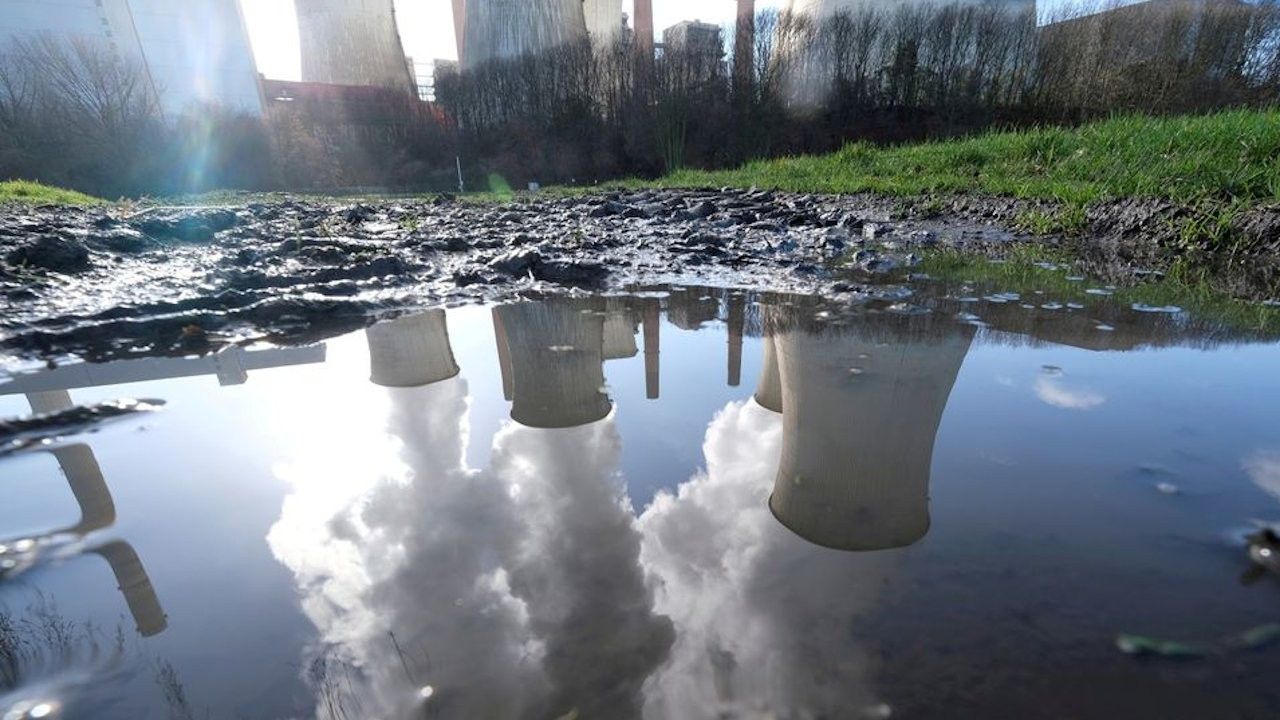New laws to turn Turkey into a nuclear waste dump
The Turkish Parliament contributed to a nuclear disaster last week. This is a risk of a future disaster. For the moment, it is a political catastrophe. And it only took 15 minutes for the parliament to pave the way for Turkey turning into a nuclear waste dump.
The Turkish Parliament spent the first week of the new term in a festive mood. On the one hand, there was the ecstasy of the ratifying of the Paris Agreement unanimously, and on the other hand, there was the confidence of the “strengthened parliamentary system” negotiations that six political parties carried out recently in an “exploratory” mode.
However, those who contributed to the euphoria first thing in the parliament contributed to a nuclear disaster right after that. Let me put it straight from the start. This is a risk of a future disaster, but for the moment, it is a nuclear political catastrophe. This entire disaster process in the parliament lasted 15 minutes.
On Oct. 6, the General Assembly of the Parliament convened. They started to discuss the Paris Agreement while the Parliament TV (Meclis TV) was on, which is live transmission to the public from parliamentary debates.
The Paris Agreement was ratified at 10:08 p.m. after Parliament TV stopped its broadcast and people retreated for the evening. Seven minutes later, another agreement was approved; another seven minutes later, a third one passed.
Those who staged their shows in the evening during the debates on the Paris Agreement were totally quiet this time. There was some kind of an absolute silence. What was that and why was the approval process so quiet? Why didn't anyone object? Why didn’t anyone say a word? Or have they agreed beforehand to hide it from the public?
Bill Number 88
Immediately after the Paris Agreement was approved, the Speaker of Parliament brought up Bill Number 88. This proposed law was submitted to the parliament on April 26, 2019. On May 30, 2019, the Foreign Affairs Committee report was issued. It could have been debated then at the General Assembly.
Bill Number 88 waited for days, weeks and months. Right after the ratification of the Paris Agreement, it was opened for debate at the General Assembly. Its full name is “Joint Convention on the Safety of Spent Fuel Management and on the Safety of Radioactive Waste Management” (Kullanılmış Yakıt İdaresinin ve Radyoaktif Atık İdaresinin Güvenliği Üzerine Birleşik Sözleşmesi). Even the name is creepy. It was exactly on the 33rd anniversary of Chernobyl that this nuclear deal was opened for debate in our Parliament.
It was on October 6, which was after being kept waiting for 895 days before being submitted to the general assembly. One deputy wrote a dissenting opinion in the committee. That was all. That person that we all should be thankful for is Ahmet Ünal Çeviköz, CHP deputy. He wrote simple and sound critical reasons opposing the bill. First, it was paving the way for the delivery of used nuclear waste to Turkey. It would make Turkey a used nuclear waste transfer country. Also, cracks were discovered twice in the cement foundations of the construction for the Akkuyu Nuclear Power Plant. No one objected, except for Ünal Çeviköz. This was an agreement that would make Turkey a nuclear waste dump.
This particular agreement passed at 10:15 p.m. on Oct. 6.
Thirteen deputies from the GOOD Party (İYİ Party) voted “YES,” and 23 deputies did not vote. Twenty deputies from the Peoples’ Democratic Party (HDP) abstained, 36 deputies did not vote. Of the main opposition, the Republican People’s Party (CHP), 78 deputies voted against, while 57 deputies did not participate in the voting. The Workers’ Party of Turkey (TİP) set a record, voting against the bill with three of its four deputies.
Bill Number 210
The next seven minutes were like the previous seven minutes, they went like the wind. The proposed law no. 210 was submitted for discussion. This bill came to the Parliament on November 13, 2019. It was discussed in the committee in April 2020 and its report was written. It waited for 18 months to be discussed at the General Assembly. It was open for debate when the Paris Climate Agreement was negotiated.
The law is called “The Proposed Law on the Ratification of the Protocol That Amends the Convention on Civil Liability Against Third Parties in the Field of Nuclear Energy dated July 29, 1960, amended by the Additional Protocol dated January 28, 1964 and the Protocol dated November 16, 1982.” It is a very strange international agreement. It is dated back to 1960. Why would a regulation of such an old date be approved now? What was the point in waiting so long to approve it? Was the Akkuyu Nuclear Plant being built without signing this deal?
Questions, questions and nuclear fears. There was an objection from a single person, HDP Adana deputy Tülay Hatımoğulları Oruç. She objected on grounds that Turkey has failed to meet its obligations under international agreements, the possibility of an accident and the amount of compensation. There were no objections other than Ms. Oruç’s objections based on the Akkuyu Nuclear Power plant.
That deal passed at 10:22 p.m. on October 6. Thirteen deputies from the GOOD Party voted “YES,” and 23 deputies did not vote. From the HDP, 19 deputies voted against, and 37 did not vote. Of the CHP, 78 deputies abstained while 57 did not participate in the vote. TİP equalized its own record when three of its four deputies voted against the bill.
That night, several deputies and their consultants tweeted with enthusiasm the story of how the Paris Agreement was accepted and ratified in the Parliament. When we woke up to a very peaceful morning, everybody was at ease. It was a very organized operation. An exemplary one. We have a lot to learn from this.
Radioactive parliamentary accident
I did learn a lot from these experiences. After the Framework Convention was passed in the parliament in 2004, a law on granting royalties for electricity generation and imported coal plants was passed. I can say that a climate agreement can be preferred to be ratified because it opens ways for several abuses. When we became a party to the Kyoto Protocol in 2009, right after that came electricity generation by royalties, the Third Bridge, the Çanakkale Bridge, the Third Airport, and then a Palace was built on the land that belonged to Atatürk Forest Farm (AOÇ), with questionable legal changes. Now, I found my answers, this time, in the first 15 minutes, about what kind of misuse or manipulation ratifying the Paris Agreement would lead right after its approval. The ruling Justice and Development Party (AKP) was quick to give the answers this time, and very precise.
So, what did we all learn? We have seen that six political parties were able to create a wave of enthusiasm in society through the “strengthened parliamentary system” negotiations, but they failed in participating in the parliamentary system right after this. On Oct. 6, 235 opposition deputies did not vote. Those who voted, used their vote in line with the ruling party. The rest either abstained or rejected. Moreover, Law Number 88 that would turn the country into a nuclear dump was passed, which was kept waiting for 895 days while no one raised the issue. Only one deputy gave a dissenting opinion and no one in the General Assembly uttered a word. Also, Law Number 210 that would carry the country into a nuclear mystery was passed.
How come? We all thought you were negotiating a strengthened parliamentary system. But you have pushed the country into a nuclear parliamentary accident.


 Climate change and pandemic raise coffee prices, threatening Turkish cultural stapleLife Style
Climate change and pandemic raise coffee prices, threatening Turkish cultural stapleLife Style $3 billion loan behind Erdoğan’s new support for Paris Climate AgreementDiplomacy
$3 billion loan behind Erdoğan’s new support for Paris Climate AgreementDiplomacy